
Butterfly, bird, blossoms
August 18th, 2009
I think perhaps I'll just sit here in the air conditioning for the next few days and post photos from the backlog. Heat exhaustion is not fun.
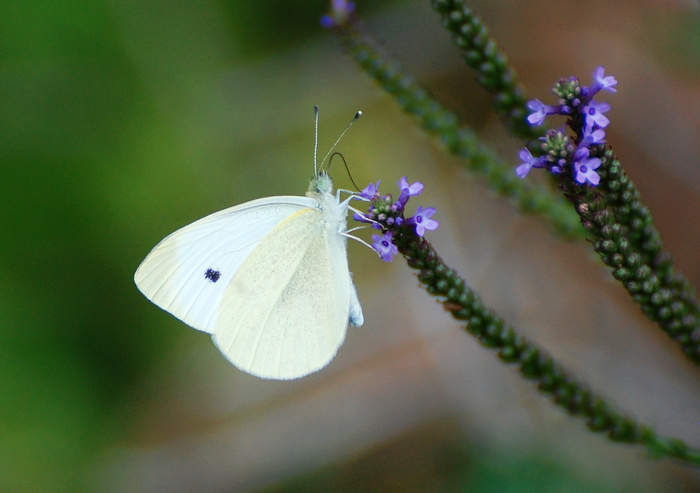
1680x1050 wallpaper
The wildflower, Blue Vervain, is native. The butterfly isn't. It's an accidental European import called a "Cabbage White."
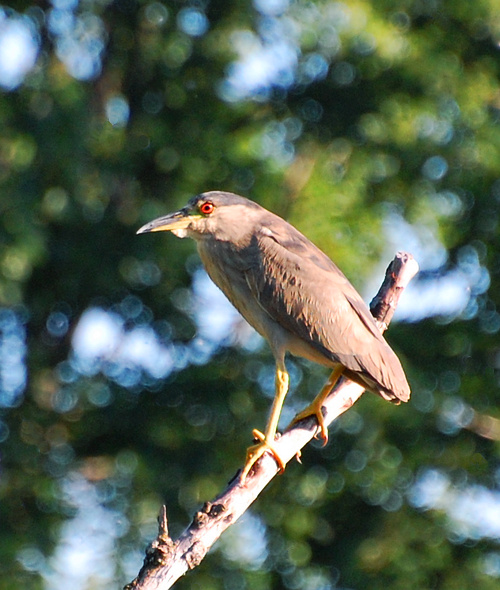
Another young Black-Crowned Night Heron, this time perched over the Deschenes Rapids.
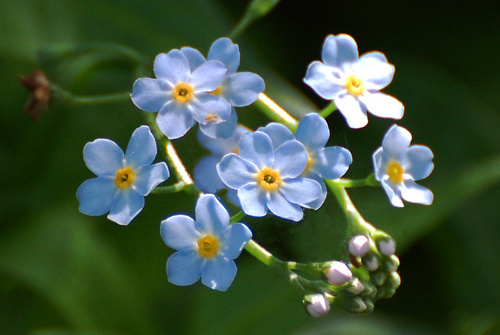
These pretty little forget-me-nots were growing in clusters by the Ottawa River. I really felt the lack of a macro lens here. They were nearly too small for me to properly capture with my usual (zoom) lens, and required a fair bit of digital sharpening.
Kingfisher Pair
August 17th, 2009
This Belted Kingfisher pair made for a nice series of pictures when they flew over Mud Lake this afternoon. I'm still trying to get a decent perched shot of this species, a common breeder at Ottawa's ponds and rivers.
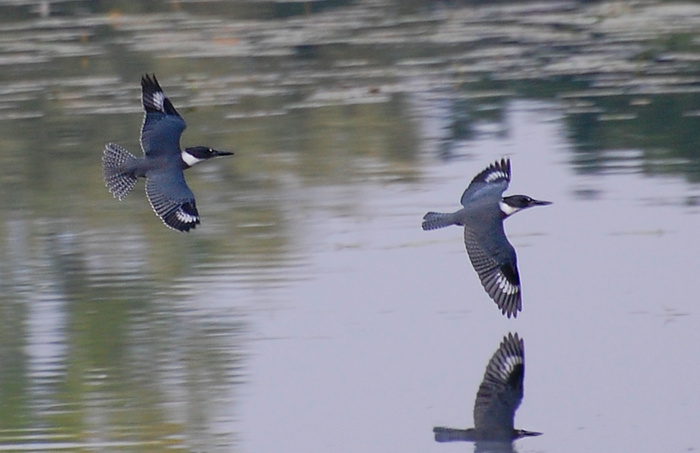
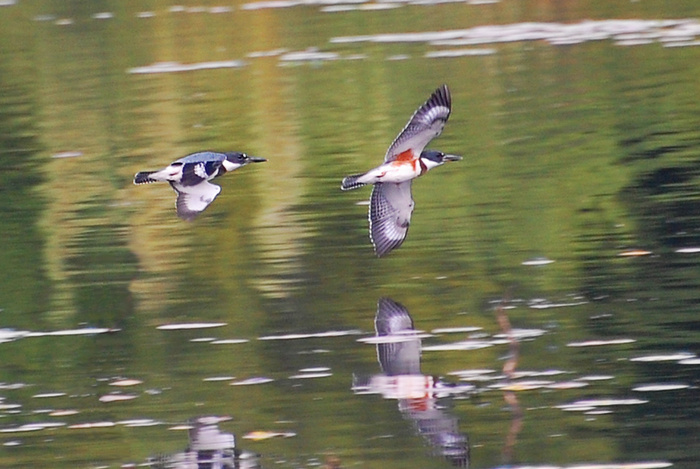
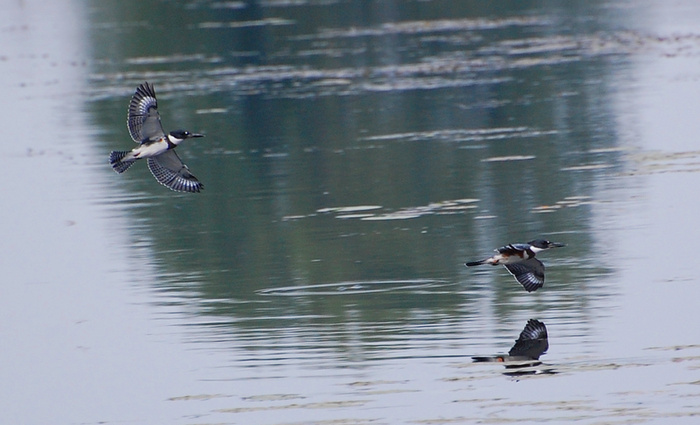
The rusty color visible on the front bird in the second picture marks her as female. This is perhaps a mated pair.
One step in goldfinch nest construction
August 16th, 2009
American Goldfinches are the latest nesting birds in Ottawa. They get started once most other birds have already raised and fledged young. Scientists are uncertain as to the reason why they evolved this way. It may be because of their dependence on thistle. Goldfinches love thistle, especially thistle gone to seed--seeds they can eat, and thistledown to line their nests with.
They're strict vegetarians, mainly seed-itarians, which is unusual among birds. Most at least feed insects to their young even if they're herbivorous as adults. Goldfinch chicks grow up on seeds. A cowbird chick hatched in a goldfinch nest is out of luck. It won't survive on that diet for more than three days.
Goldfinch nests are remarkably well-constructed. It's said that they can hold water. Woven from plant fibers, lined with down, and reinforced with spider or caterpillar web. Which brings me to this unusual set of pictures.
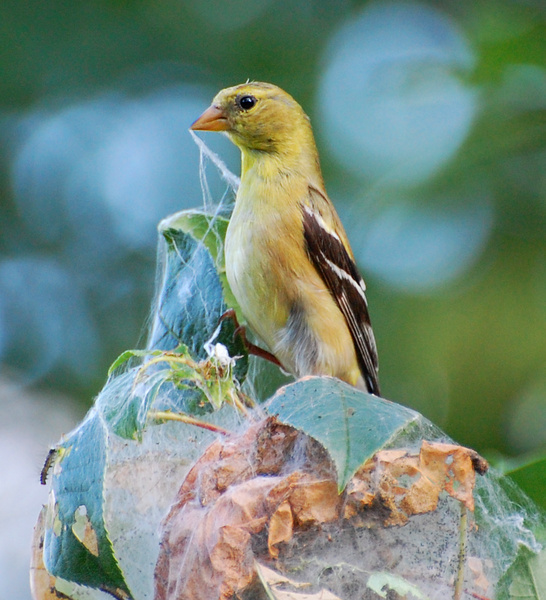
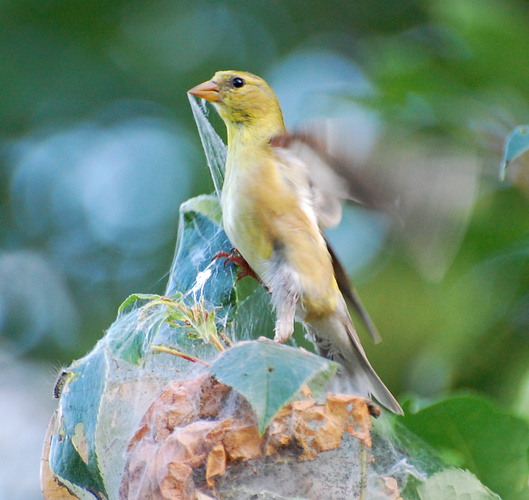
Note the tent caterpillar at bottom left! I wondered if she was stuck at first, but she eventually managed to fly off with a piece of web--and she came back for more later. Personally, I like knowing that even something as noxious as webworms can be beneficial to someone.
Creepy Crawlies
August 15th, 2009
T'was a snaily morning along the Rideau.
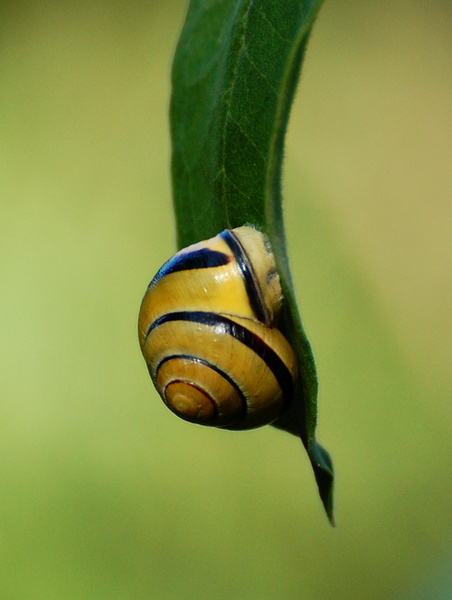

I call that one "the apartment complex."
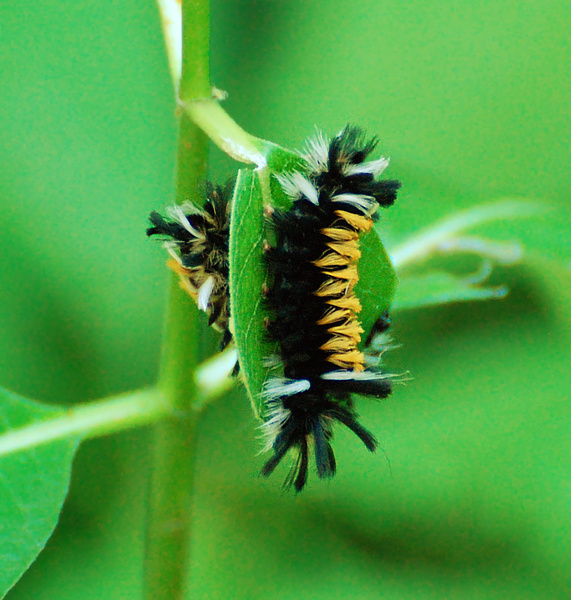
I found these caterpillars at Mud Lake today, and at first, I actually suspected that someone was putting me on. They didn't look like insects so much as ornate tassels knitted out of colored yarn, hung one on either side of a leaf to make a fool out of a nature photographer. But they were real. They're Milkweed Tussock Moth caterpillars. Their fancy appearance is intended as a warning to predators. Like monarch caterpillars, they are highly poisonous (and for the same reason: both eat milkweed.)
Young Wood Ducks
August 13th, 2009
At Riverain Park a number of Wood Ducks, mostly young Wood Ducks, have joined the year-round Mallard flock. At places like that they follow the Mallards' lead and come close to humans looking for handouts (Wood Ducks are normally quite skittish). Thus, very photographable!
There were roughtly eight juveniles milling around, probably ones who grew up on the Rideau, as well as a couple of adult females. No adult males, which is typical for this time of year. They always seem to disappear in late summer, probably gone somewhere secluded to molt their flight feathers. They'll be back in force come September.

1680x1050 wallpaper
The duck in the middle is a juvenile male, far enough along that his eyes have turned red. The white and grey patterning on his cheek is the placeholder for what will become, in maturity, an ornate facial pattern of black, red, white and iridescent green. The slight swelling at his nape is the beginning of the adult's swept-back green crest.
A young female:

1680x1050 wallpaper
This last picture is of a mature female, likely the mother of some of these juveniles. The large, wedge-shaped eye patch gives her away.

1680x1050 wallpaper
Stages of Life
August 5th, 2009
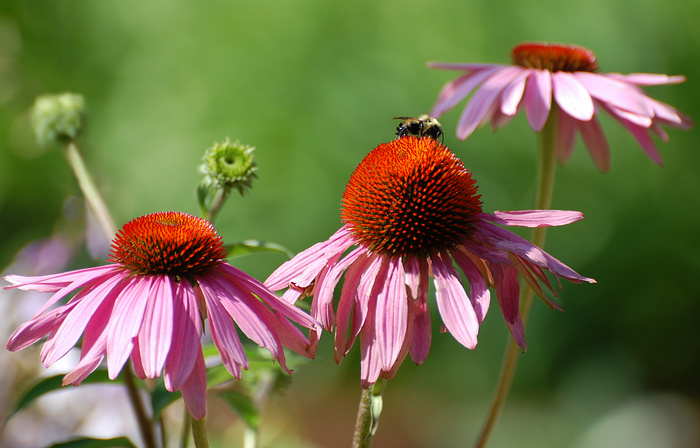
1680x1050 wallpaper
Purple Coneflower, aka echinacea. This is a native North American wildflower, although I don't think it's native to Ontario. I've only seen it in or near gardens.
Great Crested Flycatcher
August 4th, 2009
Great Crested Flycatchers seem to be moving through. Mud Lake was teeming with them yesterday.
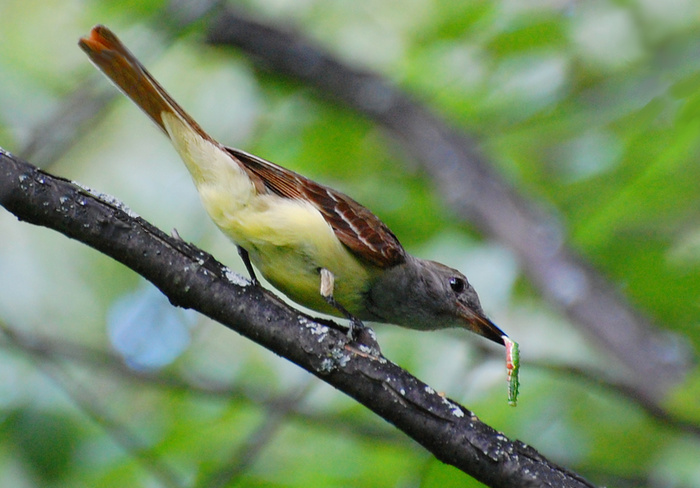
This one must have decided that flycatching was too much work.
Black-Crowned Night Herons
August 3rd, 2009
The Night Herons at Mud Lake have fledged their young, and both adults and young are becoming a common sight. This one is molting, I think, thus the somewhat dishevelled appearance.

1680x1050 wallpaper
Carrying lunch, maybe a catfish:

1680x1050 wallpaper

1680x1050 wallpaper
A handsome adult. This is certainly the most classic Night Heron shot I've ever taken--a much more typical shape and pose than in the one pictured here.
Things Best Not Messed With
August 2nd, 2009

1680x1050 wallpaper
Bald-Faced Hornet in a milkweed plant.
July 30th??
July 30th, 2009
Unlikely as it seems, July 30th and songbird fall migration is underway!
There were flocks of them on the ridge. Umpteen Yellow Warblers, Warbling Vireos and Cedar Waxwings, a few Eastern Phoebes, an adult male Yellow-Rumped Warbler, a Nashville Warbler, and last but definitely not least, a juvenile Canada Warbler (pictured below). That's a new species for me.
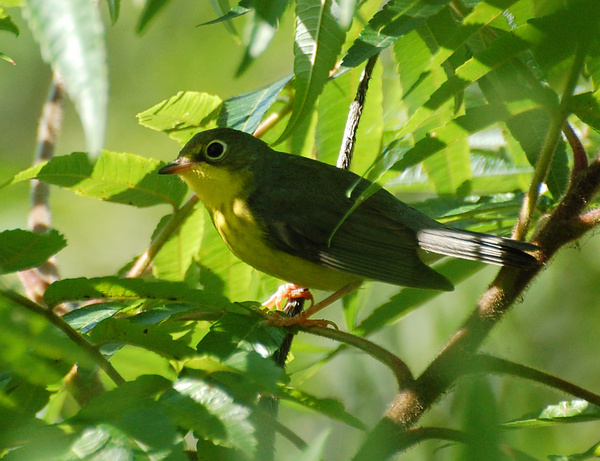
I also got a good Cedar Waxwing picture:
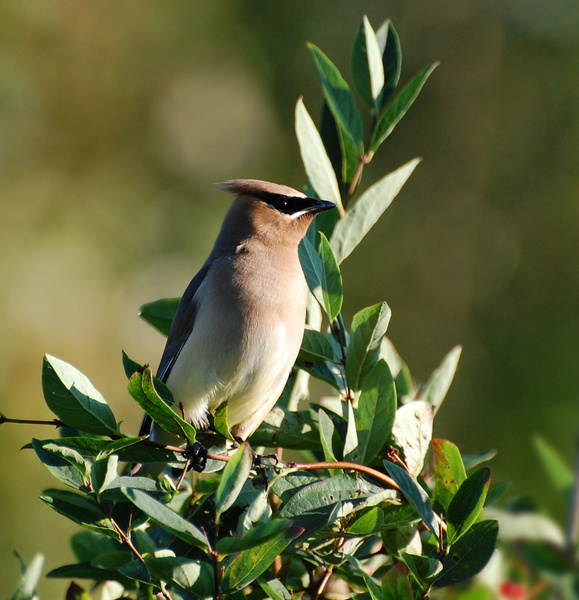
And this cutie of a Wood Duck duckling:
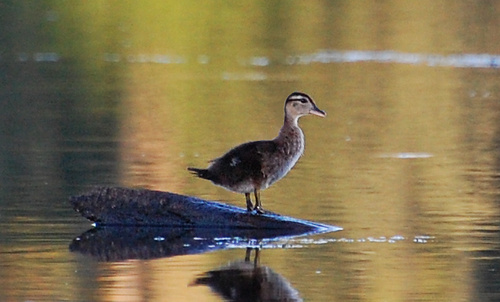
|
